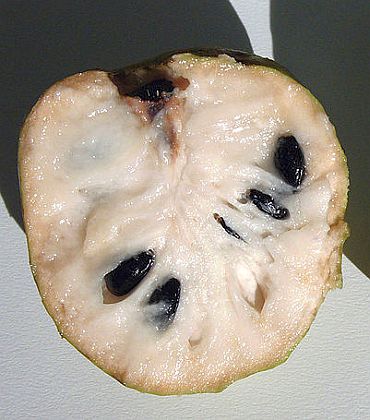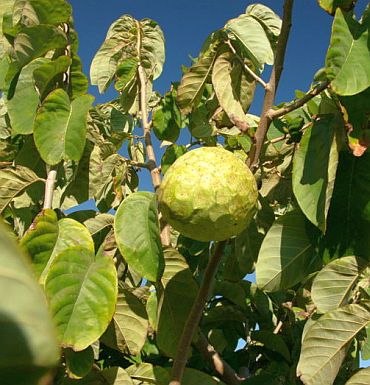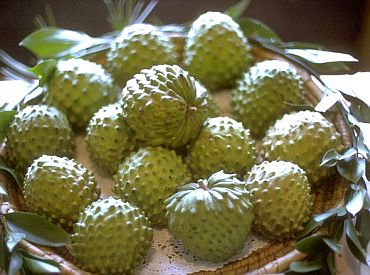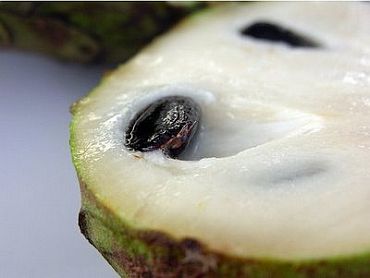
The cherimoya, or the custard apple, could be the next banana, as scientists have identified a gene defect in some plants which makes the fruits seedless.
According to the American and Spanish scientists, who detailed their work in the journal Proceedings of the National Academy of Sciences, the gene discovery may pave the way for producing seedless varieties of cherimoya, sugar apple and perhaps other fruit crops.
Going seedless could be a big step for the fruit, said Charles Gasser, a professor of plant biology at University of California-Davis.
"This could be the next banana -- it would make it a lot more popular," Gasser said.
...

Bananas in their natural state have up to a hundred seeds, but all commercial varieties are seedless.
For the study, researchers at the Consejo Superior de Investigaciones Cientificas in Malaga and Zaragoza, Spain, examined the seedless variety of sugar apple.
When they looked closely at the fruit, they noticed that the ovules, which would normally form seeds, lacked an outer coat.
They looked similar to the ovules of a mutant of the lab plant Arabidopsis discovered by Gasser's lab at UC Davis in the late 1990s.

In Arabidopsis, the defective plants do not make seeds or fruit. But the mutant sugar apple produces full-sized fruit with white, soft flesh without the large, hard seeds.
The Spanish team then contacted Gasser and began the project in Gasser's lab. They discovered that the same gene was responsible for uncoated ovules in both the Arabidopsis and sugar apple mutants.
"This is the first characterisation of a gene for seedlessness in any crop plant," Gasser said.

Seedless varieties of commercial fruit crops are usually achieved by selective breeding and then propagated vegetatively, for example through cuttings.
But the discovery of this new gene could lead to produce seedless varieties in sugar apple and other fruit crops, the researchers said.
The discovery also sheds light on the evolution of flowering plants, Gasser said.
Cherimoya and sugar apple belong to the magnolid family of plants, which branched off from the other flowering plants quite early in their evolution.
"It's a link all the way back to the beginning of the angiosperms," Gasser said.